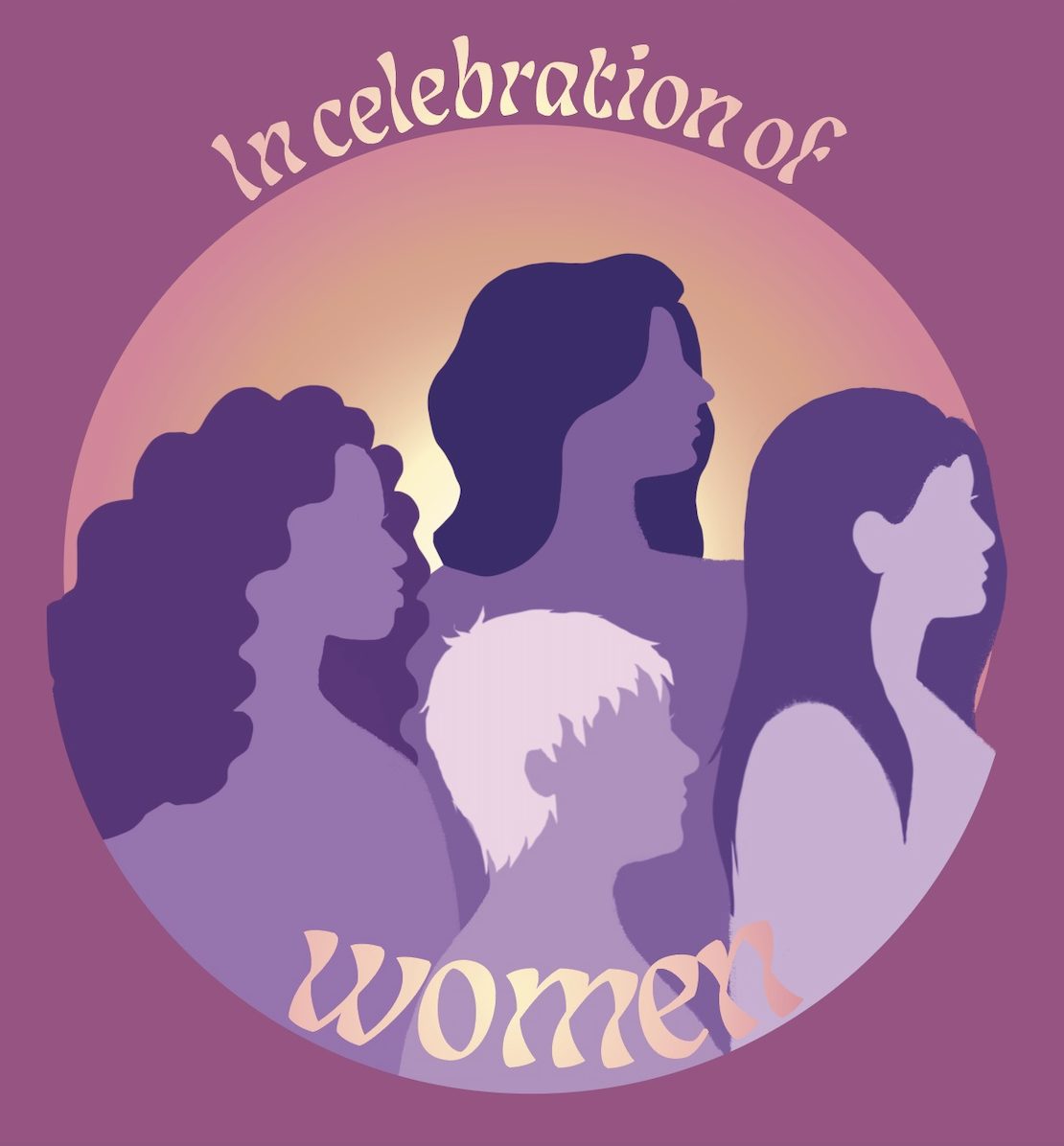From healing to hope
In light of women’s history month, female community members share their stories
April 2, 2022
For upper school counselor Jonah Alves, the mother of two young daughters, having the dedicated month of Women’s History Month is an inspirational time — a time to tell her daughters, “We can be different. We can do certain things.” In a world where her girls are growing up with standards of conformity and cultural norms, the month is a way for her to highlight inspirational women throughout history, to remind the next generation of women, “You can go where you think you need to go, you can be who you want to be.”
First established as Women’s History Week in 1982, Women’s History Month lasts through the month of March with International Women’s Day on March 8. This year’s theme, “Providing Healing, Promoting Hope,” honors the work of women in alleviating the COVID-19 pandemic as well as the women through history who have also inspired healing and hope.
Congress first designated March as Women’s History Month in 1987. This month-long commemoration of women’s achievements started out as only a week-long celebration in the Sonoma school district of northern California until it gained momentum in other schools.
As of this week, the Student Diversity Coalition (SDC) put together a board in Main Hall bordered by butterflies and flowers, featuring quotes from 12 women including Amanda Gorman, Malala Yousafzai, Greta Thunberg and Megan Rapinoe.
Women are instrumental to the Harker community, yet they are often underrepresented in student leadership. According to Talon yearbooks since 2000, only four of the 22 elected Associated Student Body (ASB) presidents have been female with the last holding the position in 2011.
ASB Community Service Committee member Cynthia Wang (10) looks to more gender diversity in leadership as a way to represent a wider range of voices within the student body. In particular, Cynthia highlighted the unique experiences that female and nonbinary identifying students have with little representation on student councils and the blurry lines of the dress code.
“I think more female identifying people at Harker would feel more validated if there were more girls on ASB because they offer a unique perspective to student council that other people aren’t able to share,” Cynthia said. “Having more nonbinary people on ASB would be great as well because they represent a pretty good portion of student body, and I think it’s really important that everyone is represented on student council.”
Cynthia aspires to eventually become Harker’s first ASB president in over a decade, pushing against odds hindering female candidates blazing the way for more gender minorities to attain leadership roles within the Harker community.
Female-presenting students have been able to exercise their leadership in clubs, empowering members of the community.
Harker’s Women in STEM Club (WiSTEM) runs a number of initiatives to bring educational opportunities to the community and to empower girls to pursue opportunities in STEM, a traditionally male-dominated field.
“What we hope to do with offering these STEM workshops to the girls around the nation, or with sponsoring these students in Kenya, is to provide them or let them know that there is support and there are people who are backing up their own STEM passions and their STEM dreams,” WiSTEM co-president Emily Zhou (12) said. “We’re pushing them to push the boundaries and push past the stereotypes that have been in the STEM field.”
Harker’s Women for Women International (WfWi) chapter began last fall as a branch of the larger Women for Women organization that aims to help female survivors of war by providing them with various resources such as hygiene kits. The Harker chapter hosted an event in December of 2021 where people could craft holiday cards for women in Afghanistan affected by war.
“[We] sent them to the people just as a little nice message like ‘Merry Christmas’ to boost their spirits because they’re in a hard position to be in,” president of the Harker chapter Ishani Sood (10) said. “It’s just about helping support them in their situation right now.”
Although Women’s History Month provides a unique time to honor strong women, the celebration slowly helps the underrepresented group gain recognition for their various achievements and contributions on an equal level as men.
“Men are celebrated 24/7, so having Women’s History Month is a gateway to being able to celebrate women all the time – just like how men are,” Ishani said. “The end goal should be to have women celebrated all the time, and Women’s History Month helps with that.”
A previous version of this article misnamed Cynthia Wang (10) as Cynthia Chen. The article has been updated on April 6, 2022, to reflect the correction of this error.
Food for thoughts and comfort
Diana O’Reilley, cold kitchen staff member, mother
I like kids, and I was actually an elementary teacher. In Mexico, I did college for teaching, but when I came here, I never pursued it. But I always liked school and kids, and then I started working in the food industry.
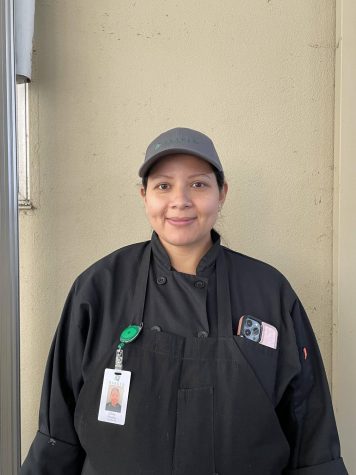
Food is comforting, and it makes you feel good so it’s always satisfying that you can make others happy [with what you make]. That’s why you’re giving to the other person, because you never know what they’re going through that day, and that can be a way to make them feel better.
One of my goals in life was to be a mom; that was something that I had very, very clear and working with kids was a way to be that kind of person.
Years ago, I got pregnant with my first son that I lost suddenly, and then a few months later, I got pregnant again, and I have an almost five-year-old son. The sad part is that my husband passed away this December. He was 44 years old; he had a heart attack. Now I’m eight months pregnant with a baby girl. I’m due in May.
I want someone else to know that even though you’re going through a hard time, you still have to go through it, especially if you have kids or responsibilities. I think women are just super strong. It’s been barely two months, going to three [since he died], and I have to keep going and working to provide for my kid and not just sit in bed and cry.
I’ve been trying my best to be that safety person for my kid. He asked for his daddy, and I had to go, daddy’s in heaven, and he’s not going to be here.
My son, I will do anything for him, and now my baby girl. That’s what keeps me going. I’m happy to be a woman. I know we go through a lot, but we always have each others’ backs. We’re strong, and that’s the bottom line.
A life in service of care
Debra Nott, Director of Health Services
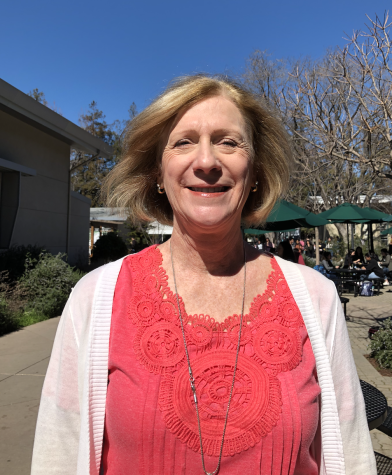
I go back to a time when women had very little power. When I was in college, my options, as were for most women, were teacher or nurse, or mother and housewife or both. And when I was in college, I attended some group sessions that were called “women’s consciousness raising sessions,” and the idea there was to convince us that we were the equals of men, because most of us didn’t think so; we weren’t trained to believe that growing up. It was surprising; I did not expect to discover that I was equal to men.
It was hard to get credit cards in our own name, and everything we did was valued less than a man doing the same thing, and we were paid less as well. But it was very common to believe that that was perfectly fine, because men had to support a family and women did not – women were just there for extra money. It’s hard to imagine today that women would have to be taught that.
Being a mother has taught me a lot about taking care of students, because it familiarized me with all of the stages of life, from birth, to launching a successful adults, and especially at the lower school, and transitional kindergarten, where the parents are new at parenting, I find it very helpful to be able to bring in decades of parenting experience to assist the parents with things that they are seeing for the first time.
I certainly always wanted to go into a health care profession, and I think by interest, and by my general personality, I would just like to help people and make them feel better. The thing I like best about my job is that every day, at the end of the day, I know I made a lot of people feel better. Their lives were better, because I was involved with them that day. And what more can you ask for [in] a profession? How more rewarding can it be?
Passing strength to next generation
Jonah Alves, upper school counselor
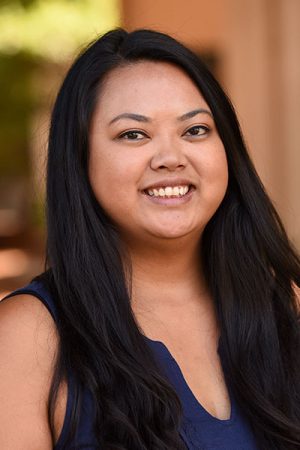
As much as we are caring for the students and the faculty here, it’s continuous because we care for people here and then we go home and care for the people at our home too. And then there’s a sense of care for your home and taking care of your home, and then at some point you lie down at the end of the night and you’re like, “Okay, let me just care for myself.”
My children are little, they’re three and six. They can’t feed themselves, so caring for others is a 24-hour thing — from when we wake up to even after we clock out.
I have two daughters, and I instill in them, “You can do anything. We don’t have to stick to these gender norms.” My mother used to always say, “You don’t need a man. You just do your own thing.” That’s something that I’ve always carried with myself, whether wanting to play sports or do things that maybe a woman wouldn’t typically do. That’s just something that I would encourage anyone to do: not to feel like they have to be confined to these expectations but to be able to explore and do something as long as they have a passion for it.
From the perspective of being a mom and raising two little girls who have very open aspirations, I am able to say, “This is a great time for you to do what you want to do.
Nurturing others from home to school
Rosalyn Schreiman, upper school counselor
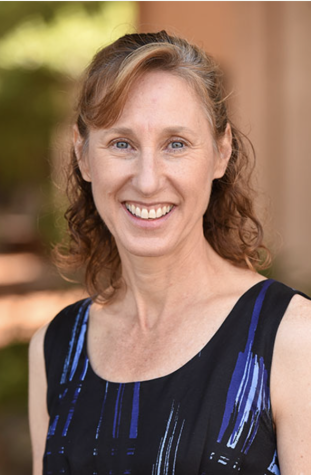
Being a woman, we have children, so that dual role of caretaking that we have to take on is a challenging one: the reality of really having your time pulled away and how to manage that. I have older children, but I would say that it’s been difficult. I think my career has definitely been affected by having children. I started working part time so that I could manage the schedule of being able to care for children and also do some work. I left the workforce for nine years while I cared for my children, and people didn’t really seem to be supportive or understanding of that during [job] interviews when I came back.
I think that we’re doing a much better job in our workplaces today, recognizing the needs that women have to nurse and pump [when they have young children], but in my previous jobs that really wasn’t recognized, and it was definitely very uncomfortable and complicated to kind of figure out a place to do that and a time that worked. It was difficult to kind of work it all together and definitely wasn’t something that people had on their mind or cared about or wanted to accommodate.
Giving every moment the fullest
Ritu Raj, upper school attendance coordinator, mother

I’m still struggling to know where it started, the saying that the woman is the one taking care of the family. Whatever men can do, a woman can do that, too. Whether it’s taking care of a family or having a job, we women give everything our 110%.
Before, my husband and I didn’t share the work. It was always coming to me, like go work, and then come back, and do the cooking also. But later, he understood that it was too much work for me, and we talked about it.
You still don’t see that very often in Indian culture, but once my girls started growing up, they also advocated for me to my husband. I definitely give a lot of credit to my girls, who were my voice.
